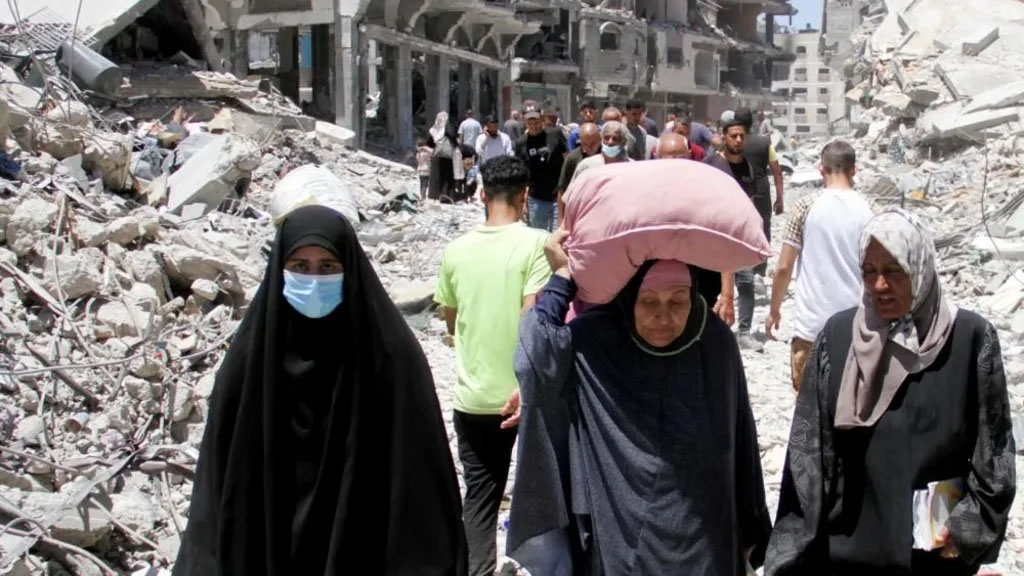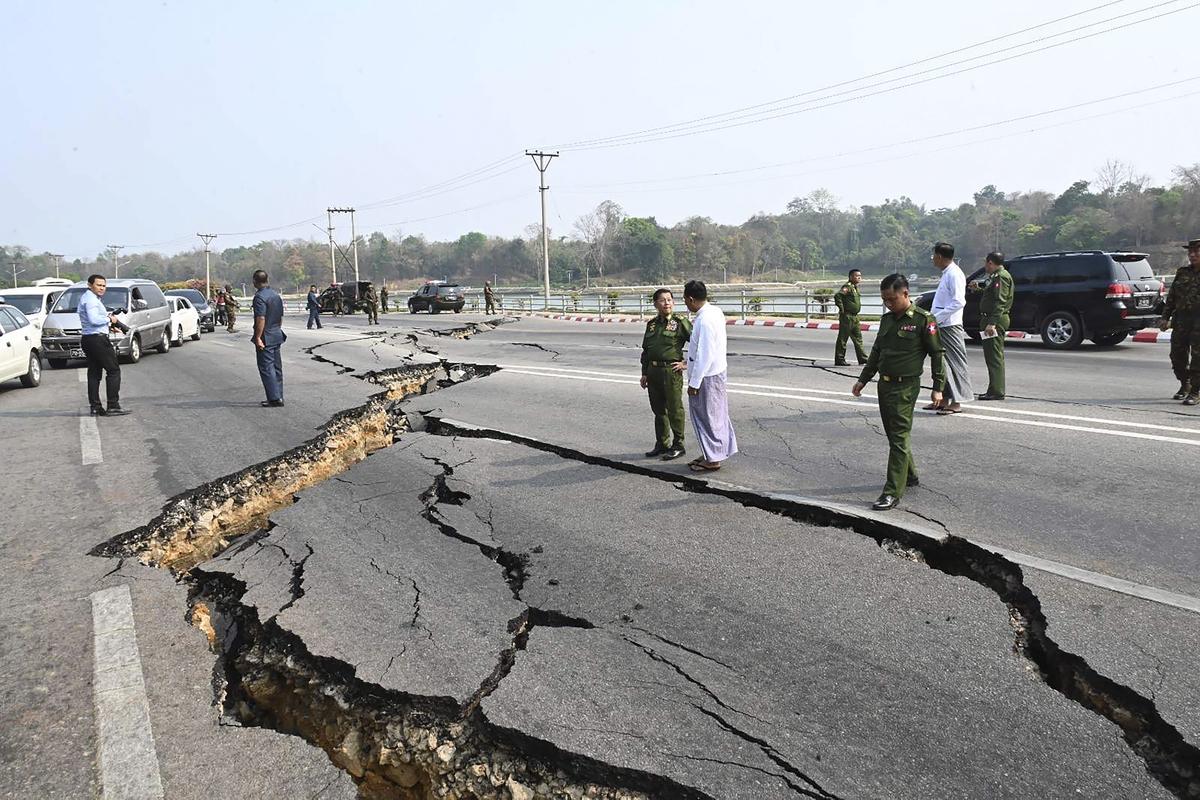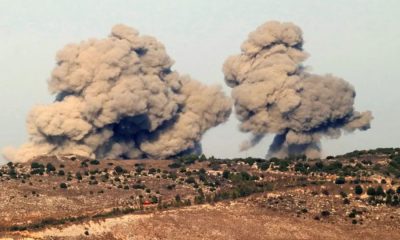International
Gaza ceasefire plan turns deadly game of survival – BBC

Gaza ceasefire plan turns deadly game of survival – BBC
For the leaders of both Hamas and Israel, ending the war in Gaza has become a deadly game of survival.
The terms on which the war finally ends could largely determine their political future and their grip on power. For Hamas leader Yahya Sinwar, even his physical survival.
It’s partly why previous negotiations have failed. It’s also why the question of how to permanently end the fighting has been put off to the last stages of the plan outlined by US President Joe Biden on Friday.
That transition between talks on a limited hostage-for-prisoner deal to discussions about a permanent ceasefire would, Mr Biden acknowledged, be “difficult”.
But it’s also where the success or failure of this latest deal is likely to hinge.
The US says it has submitted a draft resolution to the UN Security Council supporting the ceasefire plan outlined by President Biden. The three-phase plan involves an end to the conflict, the release of the hostages and reconstruction of the Palestinian territory.
READ ALSO:
- EFCC offers 5% reward to whistleblower in naira abuse case
- Obasanjo says crude oil Nigeria’s source of misfortune
- Labour may call off strike today as FG promises minimum wage above N60,000
Israel’s Prime Minister, Benjamin Netanyahu, has strong domestic reasons for wanting to take this deal step by step.
Phase one, as outlined by Mr Biden, would see the release of dozens of hostages, both living and dead. That would be widely welcomed in a country where the failure to free all those held by Hamas is, for many, a glaring moral stain on Mr Netanyahu’s management of the war.
But Hamas is unlikely to give up its most politically sensitive hostages – women, wounded, elderly – without some kind of guarantee that Israel won’t simply restart the war once they’re home.
Leaks, quoted by Israeli media on Monday morning, suggested that Benjamin Netanyahu has told parliamentary colleagues that Israel would be able to keep its options open.
That option, to resume fighting – until Hamas is “eliminated” – is, some believe, the least Mr Netanyahu’s far-right coalition partners will demand.
Without their support, he faces the prospect of early elections and the continuation of a corruption trial.
Mr Netanyahu needs to keep his long-term options open, to stand a chance of winning their support for any initial hostage deal. Hamas leaders, on the other hand, are likely to want permanent ceasefire guarantees upfront.
Previous deals have collapsed into this chasm. Bridging it now will depend on how much room for manoeuvre Mr Netanyahu has with his hard-right government allies to find alternatives to the “elimination” of Hamas – and how far Hamas leaders are prepared to consider them.
Mr Netanyahu talked over the weekend about the destruction of Hamas’s “military and governing capabilities” and ensuring that the group no longer posed a threat to Israel.
Few dispute that Hamas has suffered major losses to its military infrastructure – and even, some say, to its public support within Gaza and its control of the streets.
READ ALSO:
- MURIC condemns labour strike, says it’s a plan to frustrate Muslims
- Strike: Let’s avert another round of hardship, Sultan tells labour
- Labour leaders fighting proxy war for Peter Obi – Reno Omokri
But there’s no sign that Israel has killed or captured its top leaders Yahya Sinwar and Mohammed Deif, and leaving them free in Gaza to celebrate the withdrawal of Israeli forces would spell political disaster for Israel’s embattled prime minister.
On Monday a US State Department spokesman said that although Hamas’s capabilities had “steadily degraded” in recent months, it remained a threat and the US did not believe the group could be eliminated militarily.
Meanwhile the White House said Mr Biden had “confirmed Israel’s readiness to move forward with the terms that have now been offered to Hamas” and said the Palestinian group was now the only obstacle to a deal.
Separately, military spokesman Rear Admiral Daniel Hagari said the Israeli military would be able to ensure Israel’s security in the event of any truce agreed by the government.
However Yanir Cozin, diplomatic correspondent with Israel’s military radio station, GLZ, believes that Mr Netanyahu won’t end the war until he can frame it as a success.
“A deal that leaves Hamas is a big failure,” he said. “Eight months on, when you haven’t achieved any of the war goals – not finishing Hamas, bringing all the hostages back, or securing the borders – then he doesn’t want to end the war. But he also understands that he cannot leave it until the next Israeli election in 2026.”
“If he can say, ‘We exiled Yahya Sinwar and Mohammed Deif, they’re not living in Gaza’ – and if the people living close to Gaza and the northern border can go back – I think he can keep his government together. But it’s a lot of ‘ifs’.”
Hamas is very unlikely to agree to the exile or surrender of its top figures. But there are clear splits emerging between Hamas leaders inside and outside Gaza.
Former Israeli prime minister Ehud Barak, who has also served as defence minister, told Israeli radio on Monday that President Biden had announced the deal “after seeing that Netanyahu only moves ahead when he’s certain that Sinwar will refuse”.
“How do you think Sinwar will react when he tends to agree and then he’s told: but be quick, because we still have to kill you after you return all the hostages,” he said.
In the meantime, tens of thousands of Israelis displaced after the Hamas attacks on 7 October are watching their prime minister’s next move.
Among them is Yarin Sultan, a 31-year-old mother of three who ran from her home in Sderot on Gaza’s border the morning after the Hamas attacks. She says she won’t go home until Yahya Sinwar and Mohammed Deif are no longer free.
“This ceasefire will kill us,” she told the BBC. “We will free the hostages, but a few years from now you will be the next hostages, you will be the next people who get murdered, the women that are raped – all this will happen again.”
Gaza ceasefire plan turns deadly game of survival – BBC
BBC
International
Search for survivors continue as death toll in Myanmar earthquake exceeds 1,600

Search for survivors continue as death toll in Myanmar earthquake exceeds 1,600

The death toll in Myanmar earthquake hit 1,644, the military government said on Saturday, according to BBC, CNN, Reuters and other reports.
In neighbouring Thailand, where the quake rattled buildings and brought down a skyscraper under construction in the capital Bangkok, at least nine people were killed.
Survivors in Mandalay, Myanmar’s second-biggest city, dug with their bare hands on Friday in desperate attempts to save those still trapped, lacking heavy machinery and with authorities absent.
In Bangkok on Saturday, rescue operations continued at the site of the 33-storey tower’s collapse, where 47 people were missing or trapped under the rubble – including workers from Myanmar.
The US Geological Service’s predictive modelling estimated Myanmar’s death toll could exceed 10,000 and losses could exceed the country’s annual economic output.
A day after making a rare call for international assistance, Myanmar’s junta chief, Senior General Min Aung Hlaing, travelled to hard-hit Mandalay near the epicentre of the quake, which brought down buildings and triggered fires in some areas.
Chairman of the State Administration Council instructed authorities to expedite search and rescue efforts and address any urgent needs,” the junta said in a statement on state media, referring to Min Aung Hlaing.
Airports closed
An initial assessment by Myanmar’s opposition National Unity Government said at least 2,900 buildings, 30 roads and seven bridges had been damaged by the quake.
“Due to significant damage, Naypyitaw and Mandalay international airports are temporarily closed,” said the NUG, which includes remnants of the elected civilian government ousted by the military in a 2021 coup that triggered the civil war.
The control tower at the airport in Naypyitaw, Myanmar’s purpose-built capital city, collapsed, rendering it inoperable, a person with knowledge of the situation told Reuters.
Hospitals in central and northwestern Myanmar were struggling to cope with the influx of injured people, the U.N. Office for the Coordination of Humanitarian Affairs said, warning that damage to roads was hindering access.

Seventeen cargo trucks of shelter and medical supplies were due to arrive on Sunday to address shortages of medicines, including blood bags and anaesthetics, the agency added.
Chinese President Xi Jinping spoke by phone with the junta chief, China’s embassy in Myanmar said on Saturday, and said Beijing would provide $13.77 million worth of aid, including tents, blankets and emergency medical kits.
The United States, which has a testy relationship with the Myanmar military and has sanctioned its officials, including Min Aung Hlaing, has said it would provide some assistance.
Relief supplies from India on a military aircraft also landed in Yangon, according to Myanmar state media, and India’s government said it was also dispatching ships with 40 tonnes of humanitarian aid.
Russia, Malaysia and Singapore were also sending planeloads of relief supplies and personnel.
International
$100m coin collection buried for decades to be auctioned

$100m coin collection buried for decades to be auctioned
A coin collection, much of which remained buried underground for over 50 years, is expected to surpass $100 million at auction, according to experts.
Named the Traveller Collection, this extraordinary assemblage is believed to be the most valuable coin collection ever brought to auction.
The coins will be sold gradually over the next three years, with the first auction set for May 20.
Beyond its immense value, the collection’s origins make for a fascinating tale.
Spanning over 100 territories and encompassing coins from ancient times to the modern era, the collection is being auctioned by Numismatica Ars Classica.
What sets it apart is that most of the coins remained hidden underground for half a century before resurfacing.
According to a press release shared with CNN, the anonymous collector behind the collection began acquiring gold coins after the Wall Street Crash of 1929.
Over time, he developed “a taste for coins with great historical interest, beauty and rarity” and eventually amassed approximately 15,000 coins.
During the 1930s, he and his wife traveled extensively across the Americas and Europe, acquiring rare and historically significant coins while meticulously documenting their purchases.
READ ALSO:
- EFCC re-arraigns son of ex-PDP chairman for alleged N2.2bn oil subsidy fraud
- Group says Natasha’s recall will deepen democracy
- We welcome Gov Makinde’s U-turn on Shari’ah panel – MURIC
Despite settling in Europe at a time when Hitler’s Nazi party loomed over the continent, the collector sensed the impending danger. In response, he carefully packed the coins into cigar boxes, which were then placed inside aluminum containers and buried underground, where they remained undisturbed for five decades.
Among the collection is a 50 Toman coin, part of an “exceedingly rare” set minted in Tehran and Isfahan during the late 18th and early 19th centuries.
International
AI will replace doctors, teachers, others in 10 years – Bill Gates

AI will replace doctors, teachers, others in 10 years – Bill Gates
Bill Gates, a co-founder of Microsoft, has claimed that improvements in artificial intelligence (AI) over the next decade may render humans superfluous for the majority of work.
In a recent interview with comedian Jimmy Fallon on NBC’s The Tonight Show in February, the billionaire philanthropist discussed how AI may take over many facets of life and business.
Gates remarked that expertise is currently “rare”, emphasising the continuous reliance on human specialists in industries such as medicine and education.
For example, we continue to rely on highly trained individuals, such as “a great doctor” or “a great teacher”, whose knowledge cannot be simply replaced by AI.
However, “with AI, over the next decade, that will become free, commonplace — great medical advice, great tutoring,” Gates said.
READ ALSO:
- Senate seeks FG’s immediate intervention to slash data prices
- Reno Omokri: Nigeria gives more opportunities than US, Britain, Canada
- Driver remanded for causing Osun varsity students’ death
In other words, Gates believes that the world is entering a new era of “free intelligence”, as he described in a recent interview with Harvard University professor and happiness specialist Arthur Brooks.
According to Gates, this transition will result in rapid breakthroughs in AI-powered technology, making them more accessible and affecting almost every part of our lives.
These breakthroughs will vary from more effective treatments and diagnoses to widely available AI instructors and virtual assistants.
“It’s very profound and even a little bit scary — because it’s happening very quickly, and there is no upper bound,” Gates told Brooks.
The discussion of how humans will fit into an AI-powered future continues.
Some analysts suggest that artificial intelligence will improve human productivity rather than completely replacing labour, hence driving economic growth and creating new jobs.
However, Microsoft AI CEO Mustafa Suleyman cautions that technological improvements in the coming years will disrupt the nature of most occupations across nearly all industries, potentially exerting a “hugely destabilising” influence on the workforce.
AI will replace doctors, teachers, others in 10 years – Bill Gates
-

 Uncategorized2 days ago
Uncategorized2 days agoBreaking: Moon sighted in Saudi, UAE, others, Eid-Fitr holds Sunday
-

 metro3 days ago
metro3 days agoEFCC re-arraigns son of ex-PDP chairman for alleged N2.2bn oil subsidy fraud
-

 metro1 day ago
metro1 day agoRamadan ends in Nigeria, Sultan announces March 30 as Eid-el-Fitr
-

 metro2 days ago
metro2 days agoFubara reacts as Ex-HOS, Nwaeke accuses him of bombing oil pipelines, Rivers Assembly
-

 metro3 days ago
metro3 days agoWe welcome Gov Makinde’s U-turn on Shari’ah panel – MURIC
-

 Opinion2 days ago
Opinion2 days agoBarbaric mass burning of innocents in Edo, by Farooq Kperogi
-

 Uncategorized3 days ago
Uncategorized3 days agoObasanjo’s position on Rivers emergency rule hypocritical, says Presidency
-

 metro2 days ago
metro2 days agoEx-Rivers HoS wife cries for help over husband’s safety













